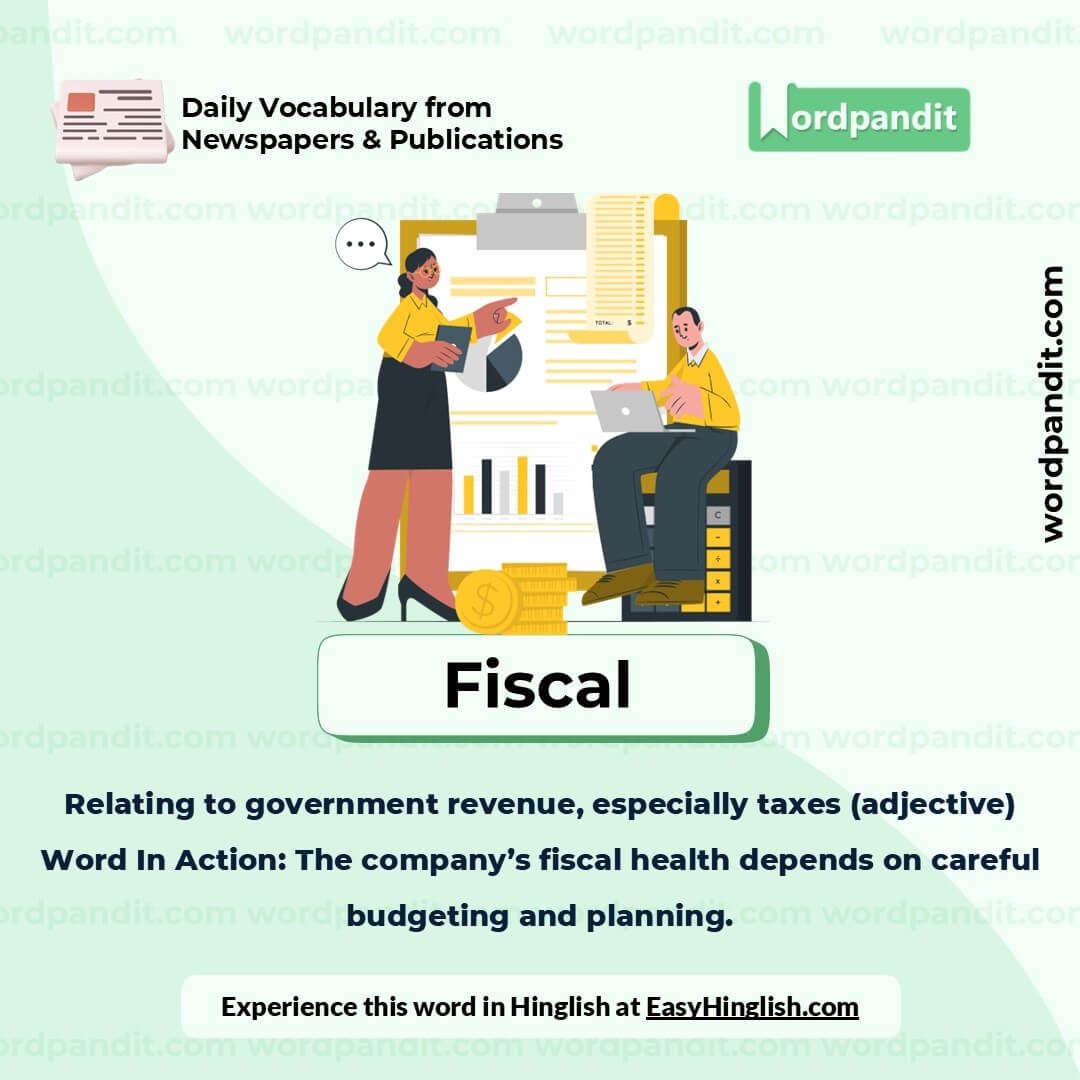Daily Vocabulary from International Newspapers and Publications
Expand Your Vocabulary with Wordpandit’s Global Vocabulary Hub
At Wordpandit, we are committed to helping you develop a truly global vocabulary by drawing from some of the most respected international publications. This section is designed to keep you ahead of the curve by introducing you to words that define global conversations and trends.
The Power of Global Sources
To help you think and communicate on a global scale, we curate vocabulary from renowned international sources, such as:
- The New York Times
- The Washington Post
- BBC
- The Guardian
- The Economist
- Scientific American
- Psychology Today
- And many more...
Stay Global, Stay Competitive
Our daily updates from international publications ensure you are consistently exposed to new words that reflect global news and developments, making sure your vocabulary is not only current but also globally relevant.
Enhance Your Global Perspective
Whether you’re preparing for international exams, aiming to excel in global business communication, or want to enhance your language skills for personal growth, Wordpandit offers the resources you need to thrive in a global context.
Effective Learning, Global Reach
Our learning methodology combines global examples, memory aids, and interactive activities, allowing you to internalize new words effectively and apply them in real-world scenarios.
Begin Your Global Vocabulary Journey Now!
Why Choose Wordpandit?
Practical Learning: Focus on words you'll actually encounter in real-world reading, enhancing your comprehension and communication skills.
Diverse Content: From current affairs to scientific breakthroughs, our varied sources expose you to vocabulary across multiple domains.
Effortless Integration: Make Wordpandit a part of your daily routine. Just a few minutes each day can significantly boost your lexicon over time.
Your Path to Vocabulary Mastery
- Visit our Daily Vocabulary section regularly
- Explore new words and their usage in context
- Practice incorporating these words into your own writing and speech
- Track your progress as your vocabulary expands
Start Your Journey Today
Embark on your vocabulary enhancement journey with Wordpandit. By consistently engaging with our daily posts, you'll build a robust vocabulary that serves you well in academic, professional, and personal contexts.
Remember, a word a day keeps linguistic limitations at bay. Make Wordpandit your daily companion in the quest for vocabulary excellence!
WORD-1: Cadres
Context:
"While these assassinations may have killed key cadres, they have inspired a new generation of Iranians to pursue nuclear science." - Al Jazeera
Explanatory Paragraph:
The term cadres typically refers to a core group of trained and qualified people within an organization or movement who drive its activities and leadership. Often, cadres are vital to maintaining the structure and advancing the goals of an organization, especially in political or military contexts.
Meaning: A small group of people specially trained for a particular purpose or profession (noun)
Pronunciation: KAH-drays
Difficulty Level: ⭐⭐⭐⭐ (Advanced)
Etymology: From French cadre meaning "framework"
Synonyms & Antonyms:
Synonyms: personnel, core group, nucleus, framework, elite
Antonyms: untrained group, amateurs, outsiders, followers
Usage Examples:
- The organization's senior cadres play a crucial role in implementing its long-term strategy.
- New cadres are recruited annually to keep the core team fresh and motivated.
- The government relied heavily on its cadres to oversee the new reform policies.
- Cadres in the military are often highly trained and selected for specialized missions.
Cultural Reference:
"The strength of a revolution lies in its cadres." - Often quoted in political and revolutionary contexts to emphasize the importance of dedicated members in a movement.
Think About It:
How does the presence of cadres impact the stability and influence of organizations?
Quick Activity:
Identify a situation or organization where a core group of skilled individuals, or cadres, plays a key role. Describe their impact on the larger group.
Memory Tip:
Think of "cadres" as the "core" framework within an organization, providing structure and purpose.
Real-World Application:
The concept of cadres is widely used in political, corporate, and military contexts, where a core group is essential for maintaining organization and continuity.
WORD-2: Fiscal
Context:
"Most Global South countries lack the tax base and fiscal firepower to fund their own national UBIs." - Al Jazeera
Explanatory Paragraph:
The word fiscal relates to government finances, especially concerning taxation and spending. When discussing a country's fiscal capacity or policies, we're referring to its financial resources and the strategies it uses to manage those resources, typically to ensure economic stability and growth.
Meaning: Relating to government revenue, especially taxes (adjective)
Pronunciation: FIS-kul
Difficulty Level: ⭐⭐⭐ (Intermediate)
Etymology: From Latin fiscus meaning "treasury" or "public money"
Synonyms & Antonyms:
Synonyms: financial, budgetary, economic, monetary
Antonyms: nonfinancial, nonmonetary
Usage Examples:
- The government introduced new fiscal policies to reduce national debt.
- A fiscal deficit can lead to borrowing, which impacts future spending.
- Fiscal responsibility is essential for maintaining a stable economy.
- Many countries face fiscal challenges due to rising public expenses.
Cultural Reference:
"Fiscal policy" is a widely discussed concept in economics, referring to government strategies for managing taxation and spending to influence a nation's economy.
Think About It:
How does a government's fiscal policy affect its citizens' everyday lives?
Quick Activity:
Research your country’s current fiscal policies. Identify one policy and consider how it impacts public services or taxation.
Memory Tip:
Think of "fiscal" as "financial" to remember that it deals with government money matters.
Real-World Application:
Fiscal policy is key in economic planning, as governments adjust taxes and spending to manage economic growth, inflation, and employment.
WORD-3: Incurring
Context:
"Critics of the movement have often pointed to the significant cost that implementing UBI could incur for governments." - Al Jazeera
Explanatory Paragraph:
The term incurring refers to the process of becoming subject to or taking on something, usually something unwelcome or negative, like costs, debts, or obligations. When a government incurs expenses, it means it is taking on or accepting financial obligations that it must eventually address or pay.
Meaning: To bring upon oneself or to become subject to something (verb)
Pronunciation: in-KUR-ing
Difficulty Level: ⭐⭐ (Basic)
Etymology: From Latin incurrere, meaning "to run into" or "bring upon oneself"
Synonyms & Antonyms:
Synonyms: acquiring, accumulating, inviting, generating, bringing upon
Antonyms: avoiding, preventing, eluding, circumventing
Usage Examples:
- By delaying repairs, the company incurred greater costs later on.
- She incurred medical expenses after her accident.
- The project incurred unexpected costs due to material shortages.
- He was hesitant to incur any additional debt while in school.
Cultural Reference:
The concept of "incurring debt" is widely recognized, especially in personal finance, as people often borrow for education, homes, or other large investments that require repayment over time.
Think About It:
How might the decision to incur a large expense impact future opportunities and financial stability?
Quick Activity:
Think of an instance where you had to incur a cost. Write down what led to the decision and how you managed the expense.
Memory Tip:
To remember "incurring," think of "incurring" as "inviting" costs or responsibilities that must be dealt with later.
Real-World Application:
In the real world, individuals and organizations often incur costs, debts, or risks that require careful management to avoid negative consequences down the line.
WORD-4: Fetters
Context:
"Currently, this transition is fettered by predatory, high-interest loans." - Al Jazeera
Explanatory Paragraph:
The word fetters refers to restrictions or chains that prevent freedom of movement or progress. Originally, "fetters" described physical shackles used to bind prisoners' feet, but now the term is also used metaphorically to describe anything that limits or holds something back, such as laws, debts, or obligations.
Meaning: Chains or restraints; something that confines or restricts (noun)
Pronunciation: FET-erz
Difficulty Level: ⭐⭐⭐ (Intermediate)
Etymology: From Old English feter, meaning "chain or shackle"
Synonyms & Antonyms:
Synonyms: shackles, constraints, limitations, bonds, restrictions
Antonyms: freedom, liberation, release, independence
Usage Examples:
- Old regulations served as fetters, preventing the company from modernizing its operations.
- The organization worked to remove the fetters of outdated policies.
- His ambition was fettered by his financial circumstances.
- Debt can act as fetters, holding people back from pursuing their dreams.
Cultural Reference:
The phrase "throwing off the fetters" is often used in literature and political speeches to symbolize breaking free from oppression or restrictive conditions.
Think About It:
What kinds of "fetters" hold people back in society, and how can they be removed?
Quick Activity:
Identify a goal you have and consider if there are any "fetters" preventing you from achieving it. Write down ways to overcome these limitations.
Memory Tip:
Think of "fetters" as "feet chains" to remember its meaning as something that binds or restricts movement or progress.
Real-World Application:
The concept of "fetters" can apply to financial, legal, or social barriers that individuals or groups may face, often requiring strategic action to overcome these limitations.
WORD-5: Encampment
Context:
"They invited the police on campus to violently dismantle their encampments." - Al Jazeera
Explanatory Paragraph:
An encampment is a place where a group has temporarily set up camp, often with tents or other makeshift shelters. Encampments are common in situations where people gather for a specific purpose, such as protests, military operations, or gatherings in outdoor settings. These temporary settlements serve as bases or hubs for the group’s activities.
Meaning: A temporary setup of tents or shelters where people gather or stay (noun)
Pronunciation: en-KAMP-ment
Difficulty Level: ⭐⭐ (Basic)
Etymology: From Old French encampement, meaning "place for a camp"
Synonyms & Antonyms:
Synonyms: campsite, settlement, bivouac, temporary shelter, base
Antonyms: permanent residence, building, fixed dwelling
Usage Examples:
- The protestors set up an encampment in the city park to voice their demands.
- After days of travel, the explorers established an encampment by the river.
- The soldiers broke down their encampment and prepared to move at dawn.
- Many people sought shelter at an encampment set up by volunteers after the disaster.
Cultural Reference:
Encampments have historical significance, especially in military and activist contexts, as temporary homes or bases where groups organize, strategize, and live for a time.
Think About It:
What are some reasons people might choose to live in an encampment rather than a permanent residence?
Quick Activity:
Imagine you are setting up an encampment. List the essential items you would need and how you would arrange them for convenience and safety.
Memory Tip:
To remember "encampment," think of "en" (meaning "in") and "camp"—a place where people are "in a camp" or gathered temporarily.
Real-World Application:
Encampments are often seen in the news during protests or natural disasters, where groups form temporary shelters for safety, solidarity, or advocacy.


















